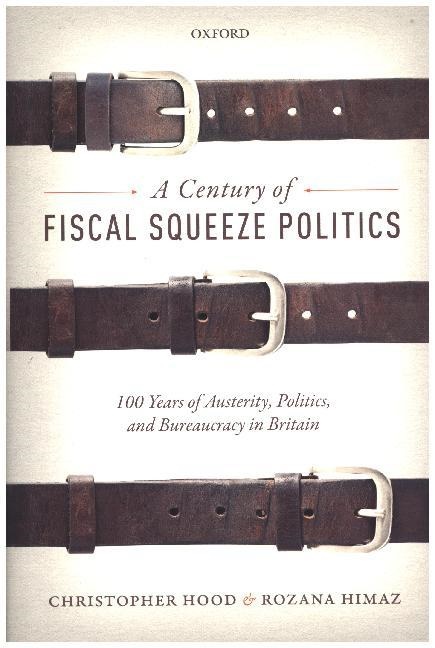Read more
This volume identifies and compares 'fiscal squeezes' (major efforts to cut public spending and/or raise taxes) in the UK over a century from 1900 to 2015. The authors examine how different the politics of fiscal squeeze and austerity is today from what it was a century ago, how (if at all) fiscal squeezes reshaped the state and the provision of public services, and how political credit and blame played out after austerity episodes. The analysis is both quantitative and qualitative, starting with reported financial outcomes from historical statistics and then going behind those numbers to explore the political choices and processes in play. This analysis identifies some patterns that have not been explained or even recognized in earlier works on retrenchment and austerity. For example, it identifies a long term shift from what it terms a 'surgery without anaesthetics' approach (deep but short-lived episodes of spending restraint or tax increases) in the earlier part of the period towards a 'boiling frogs' approach (episodes in which the pain is spread out over a longer period) in more recent decades. It also identifies a curious reduction of revenue-led squeezes in more recent decades, and a puzzle over why blame-avoidance logic only led to outsourcing painful decisions over squeeze in a minority of cases. Furthermore, the volume's distinctive approach to classifying types of fiscal squeezes and qualitatively assessing their intensity seeks to solve the puzzle as to why voter'punishment' of governments that impose austerity policies seems to be so erratic.
List of contents
- Part One: Background and Overview
- 1: Setting the Scene: The Politics of Austerity and Fiscal Squeeze
- 2: UK Fiscal Squeezes over a Century: A Summary Comparison
- Part Two: Selected Periods of Fiscal Squeeze Over a Century
- 3: World War I and the 1920s: From Tax Squeeze Through Double Squeeze to Spending Squeeze
- 4: The 1930s Squeeze: From Revenue Squeeze to Spending Squeeze via Political Crisis
- 5: World War II and the 1940s Labour Austerity
- 6: The 'Stop-Go' Squeezes of the 1950s and 1960s
- 7: Stagflation, Recession, Currency Crisis and Political Crisis
- 8: 'Rolling Back the State'? Fiscal Squeeze, Thatcher-Style
- 9: Fiscal Squeeze in the 1990s: Tales of the Unexpected
- 10: After the 2008 Financial Crash: The early 2010s
- Part Three: Patterns and Lessons
- 11: Conclusions: from the Past to the Future of Fiscal Squeeze
- Statistical Appendix
About the author
Christopher Hood (CBE, FBA) is Gladstone Professor of Government Emeritus and Emeritus Fellow of All Souls College, Oxford, and Visiting Professor at the Blavatnik School of Government, Univeristy of Oxford. His publications include A Government that Worked Better and Cost Less? (with Ruth Dixon, 2015, OUP), Forging a Discipline (with Desmond King and Gillian Peele, OUP, 2014), and When the Party's Over: The Politics of Fiscal Squeeze in Perspective (with David Heald and Rozana Himaz, OUP for the British Academy, Proceedings of the British Academy 197, 2014).
Rozana Himaz is Senior Lecturer in Economics at Oxford Brookes University. She works on issues pertaining to welfare, policy and the public sector. Her publications include When the Party's Over: The Politics of Fiscal Squeeze in Perspective (with Christopher Hood and David Heald, OUP for the British Academy, Proceedings of the British Academy 197, 2014).
Summary
This book carefully identifies and compares episodes of 'fiscal squeeze' in the UK over a century from 1900 to 2015.

